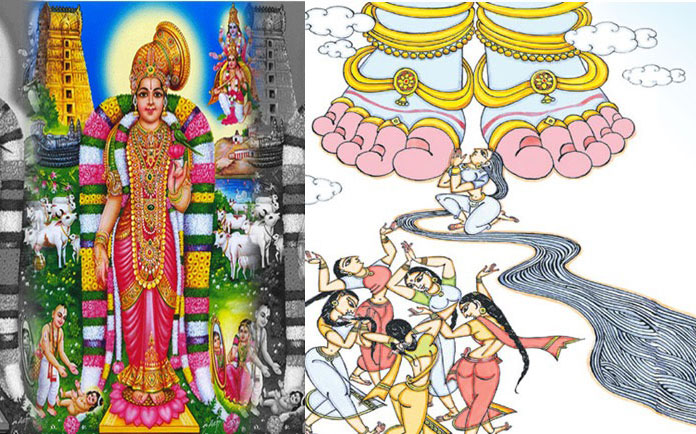
Sri Vedanta Desika(13th Century) has sung “Goda Stuti” in praise of Andal, (29 Hymns) in Sanskrit. Sri Aurobindo, in an article on Andal, states “It would seem as if this human symbol God becoming the lover, was the natural culminating point for the mounting flame of the soul's devotion”.Ī Sanskrit commentary of Tiruppavai has been written by Sri Ranga Ramanuja(16th Century).

Tiruppavai has also been translated in Telugu, Kannada, Gujarati, Hindi, French and English. Even now, partly transmuted versions of these Hymns are recited in festivals, temples and royal ceremonial occasions in the above countries. Tiruppavai and Tiruvempavai are widely recited in Thailand, Siam and Cambodia from 15th century onwards. Amuktha Malyatha means Sudikodutha Nachiar, in Tamil. Krishna Devaraya, (16th Century A.D.), a great Sanskrit scholar and a mighty king of Vijayanagar kingdom, synonymous with military glory and economic prosperity, wrote Andal's Life History in his treatise Amuktha Malyatha (Telugu). The other transliteration works mentioned above will be released shortly. He has made this treatise also available in English transliteration and other Indian Languages: Telugu, Kannadam, Malayalam and Hindi. "Concepts of Sri Andal's Tiruppavai", 1995, 293 PagesĢ. Chenni Padmanabhan M.D., Cardiologist, the author of the renowned publications:ġ. The verse form in English was written by Prof.

This site of Sri Andal, is created for the Vaishnavite devotees, living all over the Globe, who want to sing and emotionally involved in praying Sri Krishna. It enables us to perceive the Prakriti, Paramatma and Jeevas merging with each other by Para Bhakthi. Tiruppavai teaches us to feel emotion while praying to the Lord. The procedure of awakening her mates and proceeding to the river-bed, with Bhajan and to bath the Deity, is the topic of Tiruppavai. Andal was born at Srivilliputhur near Madurai, in the Tamil month Adi, with the brith-star Pooram.Īndal imagined herself as a cow-girl at the time of Sri Krishna, collecting all girls at Ayarpadi at dawn during the Margali month, day after day performing the rituals on the banks of the river Yamuna and bathing the Deity. Sri Andal, One of the twelve Alwars and the only female saintess, lived in the first half of 8th century A.D.


 0 kommentar(er)
0 kommentar(er)
